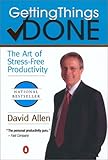When I was around 10 years old I heard a parable that made such an impression on me that I never forgot it. The story had an important lesson that is just as important today as an adult- maybe more so.
David in Diamondonia
Once upon a time deep in the mountains of Russia a small community was in trouble. The harvest was weaker than the normal tiny output and there wasn’t much optimism for the future. There was little food, the houses were falling apart and many were residents were sick. The elders in the town got together and discussed their dim situation. They went through their options but there were none. They had tried all options in previous years and each year was just getting worse. There weren’t any good new ideas that the elders could came up with. Finally an old man spoke up and told of a far away land called Diamondonia. It was always dark in Diamondonia but it had diamonds for sale so cheaply that they were almost treated like rocks. The road to get to that land was long and dangerous. After much debate the elders of the town decided that this was their only hope. They decided to send a messenger to the far off land.
For a mission this important they needed to pick their smartest and ablest citizen a man named David. They collected as much money as they could and sent him off with for his treacherous journey.
David traveled for months over mountains through the coldest cold he’d ever felt and across deserts with the hottest hot. There were many times he wanted to give up but he thought back of his town and continued on. Finally after almost a year of travels he was getting close to Diamondonia the sun was disappearing and it was getting darker. It was so dark that he could barely see.
Finally he came to a peddler selling candles. He asked about Diamondonia and got directions to the town- just one month away. He was excited. But the peddler warned him “You’ll need to buy many candles to make it to there and this is the last place you’ll be able to get it so cheap.” The candles were quite expensive, it cost five times more than it did in his town. He was wise and surmised that this peddler was honest. He needed the candles to keep going so he bought a bunch with almost all his remaining money.
Finally after one month of traveling he came to Diamondonia. There was a large commotion in the nearby market and he quickly ran there to buy diamonds. To his surprise the merchants weren’t selling diamonds- they were selling candles. There were all kinds of candles in all kinds of colors giving off all kinds of beautiful lights. Some candles even danced, others illuminated large areas and still others gave the most beautiful combination of colors he’d ever seen. Then there were even candles that acted as fireworks, fireworks like he’d never seen. There were more candles there than he’d ever seen in his life.
He asked about purchasing diamonds. The merchants looked down on him. “Why do you need that?!?” one merchant replied. “Can’t you see it’s dark in this town. Diamonds wont give you any light.”
Finally he was referred down an alley to a dimly lit shop. In there he saw all kinds of diamonds small ones for a few rubles. Large ones for 50 rubles. Even the smallest diamond would be worth a lot back home. Unfortunately at this point he’d used up almost all his money on getting to Diamononia and he still needed to get back.
He purchased two small ones and told the diamond dealer “I’ll be back with more money” and he started to walk out.
The diamond dealer just smiled and said “they never come back”.
He planned on spending the next few days working hard and earning money. There was no place to get light, so to do anything at all he needed candles. But candles were very expensive. Even cheap ones could cost hundreds of rubles. He bartered his efforts for money. He sought out bargains and learned to negotate well. He was able to purchasing many candles and even got a few beautiful ones at very reasonable prices. He had an eye for bargains. In his work he befriended some of the richest people in town who showed him their candle collections. One showed him the most beautiful light he’d ever seen- the cinderella. He vowed to himself that he’d work very hard so he could one day purchase a cinderella. He was sure that the people of his town would be similarly amazed by this most beautiful light.
He worked hard everyday motivated by buying that beautiful light so his town can share its majesty. His little town can be the only one in the region with a cinderella. Finally after two years of hard work he was able to purchase that cinderella. He was the envy of his friends in Diamondonia. He realized that although he enjoyed his time in Diamondonia it was time to head back to his own town. He packed up his bags and gingerly put in his candle collection. He’d amassed a small collection and he stuffed every last piece in his bags. His bags that came bare were leaving full. He was proud of his accomplishments.
It took another year to arrive back home and although the cold seemed colder than he remembered and the heat was hotter than he remembered, the road back seemed to go a little quicker. He couldn’t wait to tell the elders how hard he’d worked and show them how successful he was.
Finally one cold winter day he came walking up the snow covered path to town. Word quickly spread that he’d arrived and the entire town was out to greet him. The children were screaming his name, their parents were singing and even the old people of the town came out on their canes, happy that the mission was successful. After a four year journey he was getting a warm welcome. Although the people were a little older and the town was a little more warm, the welcome was more warn than he could have imagined.
Finally he went in the town hall and opened the contents of his backpack and showed the town his collection of candles. The elders were confused.
“Are these candles made of diamonds?” they asked.
“Of course not,” he laughed. “They are worth more than diamonds.”
He then pulled out the cinderella. Everyone agreed it was the most beautiful candle they had ever seen. But the whole town, even the children, also agreed that David was the most foolish person they’d ever seen.
“You can’t sell a candle for more than a diamond in Russia. Even one as beautiful as the cinderella.” they said.
Just then David looked around the town hall and realized his folly. He feverishly searched through his bag and found the two small diamonds he bought on the first day in Diamononia. He also had a few others he’d picked up around town as souvenirs. He even remembered about one in the heal of his shoe to make his shoe fit better.
The town was happy again. The diamonds were enough to get them through a few winters.
But David was sad- he realized his backpack could have been filled with diamonds.
The Moral
Any story you hear when you’re 10 has a moral. The moral I was told was that we are in this world but a short time we shouldn’t be sucked in by the bright lights of this world but we should be collecting diamonds through kindness and good deeds.
As a 10 year old I remember being struck by how stupid David was. The message made it’s point.
More Morals
As I look back there are many more lessons to get from this story. Some of which I see more clearly today. I’ll talk about those another time.
What lessons did you learn from this story?


